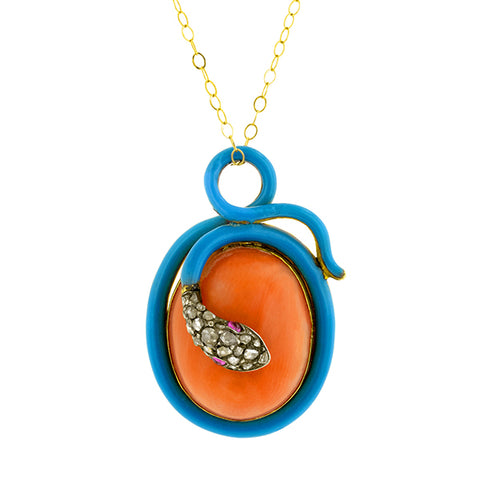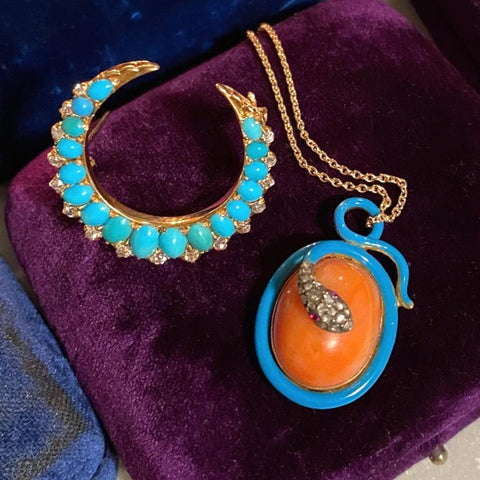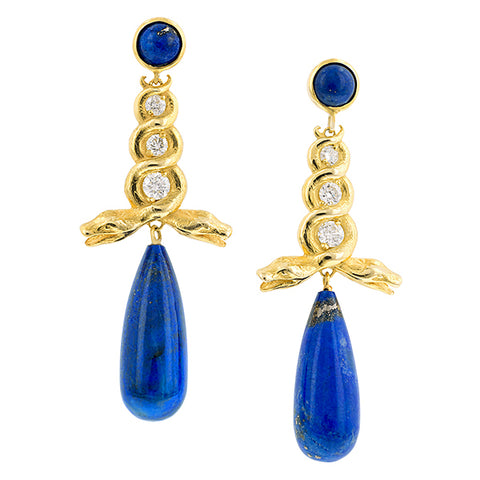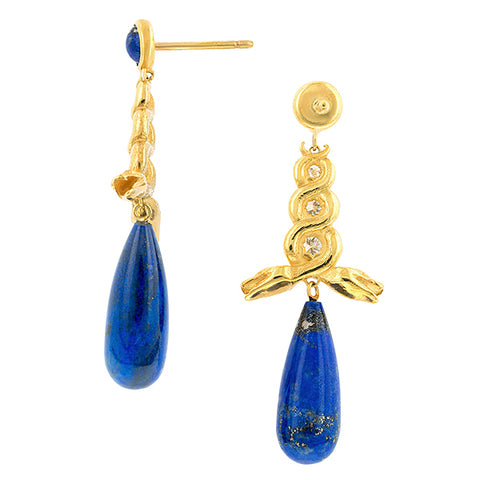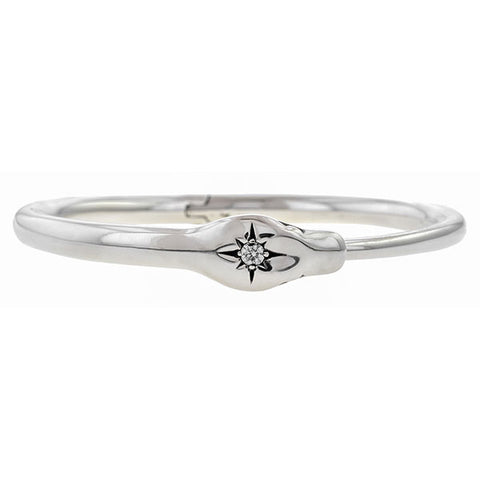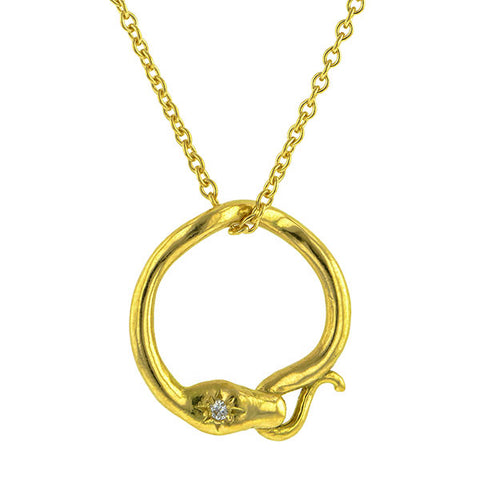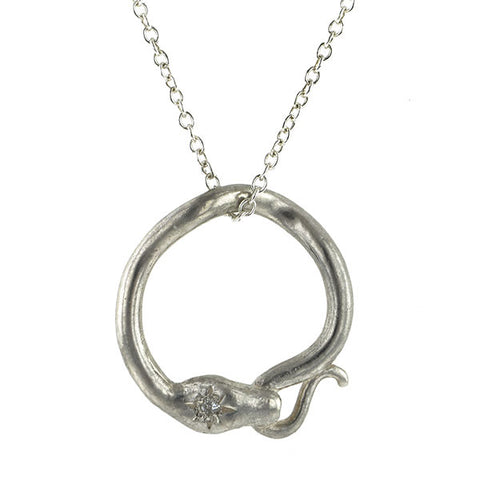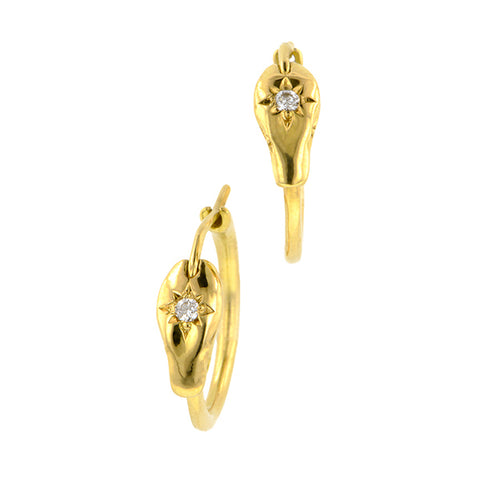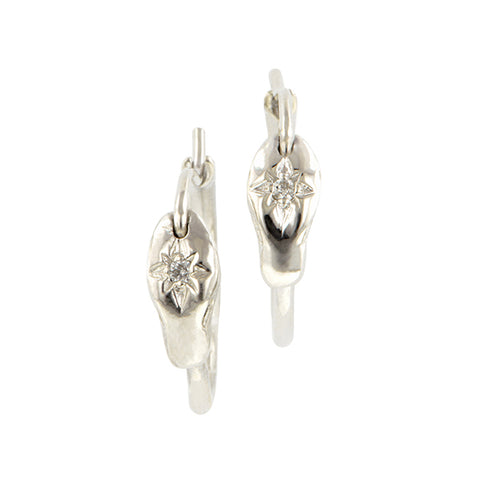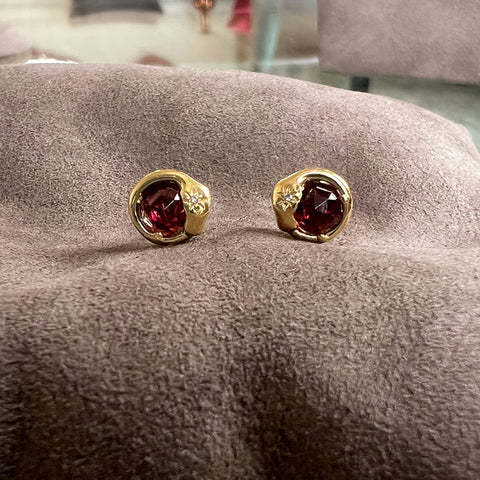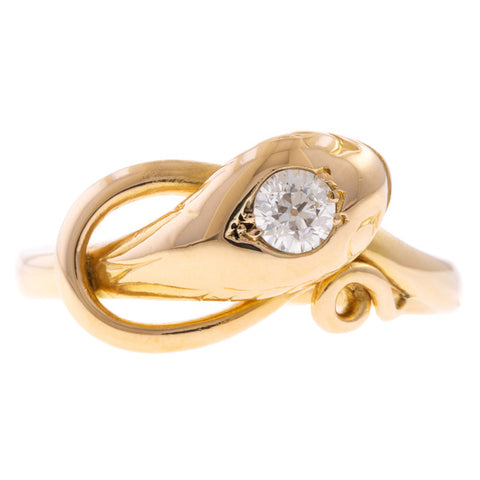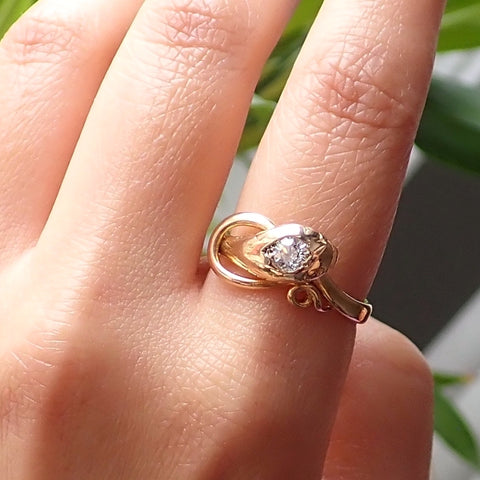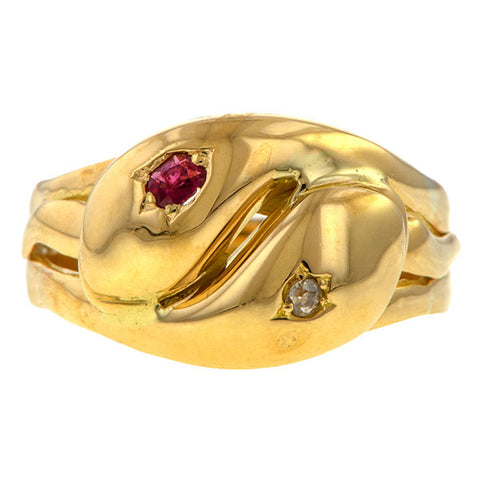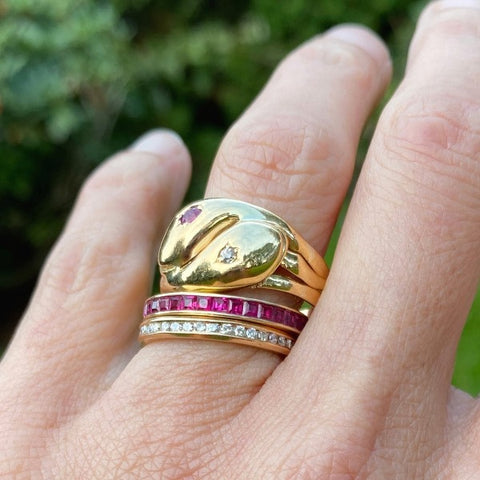Categories
Categories
Snake motifs have slithered their way through jewelry design for thousands of years, captivating wearers across cultures with their rich symbolism and sinuous beauty. From ancient Egyptian royalty to Victorian nobles to today's jewelry lovers, snake jewelry continues to express timeless themes of protection and rebirth.

Ancient Beginnings: Protection and Power
In ancient Egypt, the snake was revered as a symbol of royalty and divine protection. Pharaohs adorned themselves with cobra-shaped crowns called uraeus, representing the goddess Wadjet who offered fierce protection. Similarly, in ancient Greece and Rome, a snake bracelets wound around the arm symbolized eternal love and fertility. These were often given as wedding gifts.

The Ouroboros—a snake eating its own tail—appeared across numerous ancient cultures as a powerful symbol of eternity and the cyclical nature of life. This circular motif found its way onto amulets and rings worn for protection and spiritual connection.

Victorian Revival: Romance and Rebellion
Snake jewelry experienced a dramatic resurgence during the Victorian era, particularly after Prince Albert presented Queen Victoria with an emerald-set snake ring. The snake, representing eternal love and wisdom, became fashionable among the elite. Victorian snake bracelets and rings often featured rubies or garnets for eyes, giving them a mysterious, almost hypnotic quality.

This period saw snake jewelry crafted with unprecedented detail—scales meticulously engraved, bodies articulated to move naturally with the wearer, and precious gemstones integrated into sophisticated designs.

Modern Interpretations: From Punk to Luxury
In the 20th century, the snake motif took on new life through artistic movements and countercultural fashion. The Art Nouveau period embraced the sinuous lines of the snake as perfect expressions of the movement's organic aesthetic. Later, punk and rock subcultures adopted snake imagery for its rebellious connotations.

Today's luxury houses continue to reinvent snake jewelry. Bulgari's iconic Serpenti collection transforms the snake into high jewelry masterpieces that dramatically wrap around the wrist or neck. Alexander McQueen also incorporated striking snake imagery into his avant-garde designs, playing with themes of danger and attraction.
Symbolic Versatility
The snake's rich symbolic versatility makes snake jewelry enduringly popular:
- Rebirth and Transformation: Snakes shedding their skin represent renewal and transformation
- Wisdom and Knowledge: From the biblical serpent to ancient Greek mythology, snakes are associated with forbidden knowledge and wisdom
- Protection: Many cultures view snake jewelry as protective talismans
- Sensuality: The snake's fluid movement evokes sensuality and feminine power
- Duality: Representing both life and death, medicine and poison, snakes embody the contradictions of existence

Wearing Snake Jewelry Today
Whether you're drawn to its historical significance, symbolic meaning, or simply its aesthetic appeal, snake jewelry offers versatile styling options:
- A snake bangle paired with a simple black dress creates sophisticated drama
- Delicate snake stud earrings add subtle edge to everyday outfits
- Vintage-inspired snake rings with colored gemstone eyes make conversation-starting statement pieces

The enduring appeal of snake jewelry lies in its perfect balance of danger and beauty, tradition and rebellion. As we continue to reinvent this ancient motif, the snake remains what it has always been: a powerful symbol of our complex relationship with nature, ourselves, and the eternal cycles that connect us all.



